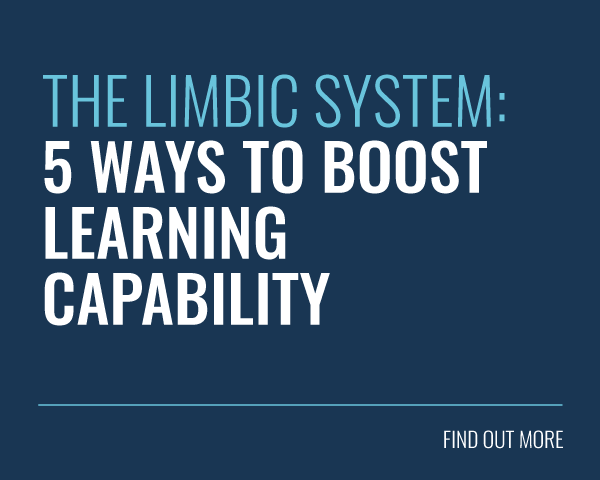‘Perception, intuition, judgement and reasoning. Memory, processing, attention and sequencing’.
This is not part of an insightful rap song by De La Soul. It’s a selection of cognitive skills.
Cognitive functioning is studied by neuroscientists, psychologists, anthropologists and philosophers worldwide. It’s kind of a big deal!
Sometimes your cognitive skills may require sharpening. This is integral for learning and development, not to mention colleague interaction. Luckily, there are plenty of methods that improve your cognitive prowess.
Below are two tips to help you become as sharp as a razor! But first, let’s learn more about these curious skills …
What is Cognitive Functioning?
‘Cognitive’ derives from the 15th-century Latin word cognōscō, meaning ‘I know, I perceive’.
In some ways, the definition is still the same.
The cognitive process is the intellectual system by which one becomes aware of, or comprehends, ideas. It’s a form of organising which clarifies and arranges information. This way, it’s easier to recognise, recollect and react to situations. Without cognitive functioning, we would probably be putting our underwear in the toaster.
To put it simply, it helps us make sense of the world.
The Brainy Bit …
The frontal lobe processes the following:
– Memory
– Learning
– Judgement
– Planning
– Organising
– Problem-solving
– Decision-making
– Reasoning
– Attention
– Concentration
– Understanding
The temporal lobe processes the following:
– Memory
– Learning
– Hearing
– New information
– Identifying objects and faces
– Recognising emotions in others
Each lobe has a filtering system in place to help scan and organise information. Sometimes this system becomes muddled due to stress, lack of sleep and that old enemy, age!
Distressing byproducts of cognitive malfunction include: a slower thought process, weak concentration, loss of memory, or general brain-fog.
Not to fear, fellow learners! There are things you can do to clear the fog and to help sharpen your attentiveness. A good place to start is by exercising regularly and reducing your stress levels. Let’s explore further!
Boosting Your Cognitive Functioning

1. Physical Activity
Some of us love it, some of us don’t! Physical activity is hugely beneficial to our cognitive functions for several reasons.
-
Increases Oxygen
The brain craves a non-stop amount of oxygen and other fantastic chemicals. Increasing the heart-rate passes these to the brain at a faster pace. If we look after the brain, the brain will look after us.
-
Increases Neurons
Neurodegenerative diseases such as Parkinson’s disease trigger cognitive impairments. This can include slow thinking and memory loss. Exercise helps in this battle as it raises the brain-derived neurotrophic factor. This encourages the growth of new neurons. New neurons help us maintain our cognitive abilities such as attention and learning.
-
Increases Memory
Exercise boosts short-term memory for around 2-3 hours after activity. This is according to Dr John Ratey’s book ‘Spark: The Revolutionary New Science of Exercise and the Brain.
Keeping fit also increases blood flow to the hippocampus. The hippocampus is the part of the brain accountable for our memory.
-
Increases Attention
Physical exercise helps to burn off excess energy. This is why people often go for a jog or visit the gym when wanting to improve their focus. When you practice any type of physical activity, your brain releases neurotransmitters. Neurotransmitters are feel-good chemicals. One of these is dopamine. Dopamine helps with focusing our minds and therefore improves our attention.
2. Reduce Your Stress!
 Interestingly, 85% of UK adults experience stress regularly. A minimal amount of stress can be helpful. For example, it may lead to positive change as well as promoting awareness. However, if you have too much, it’s bad for you and your cognitive functions. Here are some reasons why reducing stress is good a good call…
Interestingly, 85% of UK adults experience stress regularly. A minimal amount of stress can be helpful. For example, it may lead to positive change as well as promoting awareness. However, if you have too much, it’s bad for you and your cognitive functions. Here are some reasons why reducing stress is good a good call…
-
Increases Brain Cells
It’s a well-known fact that stress can prevent your brain from growing new cells. It can actually kill brain cells. Brain cells are integral for clear thinking and memory, factors which are essential for learning new info.
The more relaxed you are, the better chance brain cells have of living. This is one of the many reasons why relaxing before learning is an excellent idea.
-
Decreases Cortisol
When the brain is fearful, it releases cortisol. Cortisol is the body’s natural warning system. It’s great for when we’re being chased by a lion. It’s fantastic when we’re in shark-infested waters. It’s not so ace when we’re trying to focus at our desk. Sometimes our body produces too much cortisol. This can lead to depression and anxiety. Both of which are very destructive when it comes to cognitive skills such as memory and attention. You can help tackle high cortisol levels by learning some breathing techniques and ensuring you’re working within a stress-free environment.
-
Increases Memory Retrieval
Stress can be good for learning as it builds strong memory formations. However, it’s not so great for memory retrieval as it creates rather hazy recollections. By ensuring you are relaxed as you learn, you’ll be able to soak in information with a clear head. It will then be easier for neurons to access the pathway when attempting to recall information. Need some tips when it comes to improving your memory? Take a look at our guide to knowledge retention.
Final Word
When you consider the word ‘cog,’ you may visualise a toothed cogwheel turning. Cognitive skills are a bit like this. When one cogwheel jams, it can have a domino effect on the rest.
Ensure your head-cogs are in fine condition by embracing physical exercise and by reducing your stress levels.
Having sharp cognitive skills is essential for learning, as is learner engagement. Genie is our awesome game-based authoring tool that helps learners engage with their learning!
You can find out more about learner engagement by signing up for a free trial of Genie here!
Like this blog? This is part of a neuroscience collection. Check out another recent neuroscience blog here:








